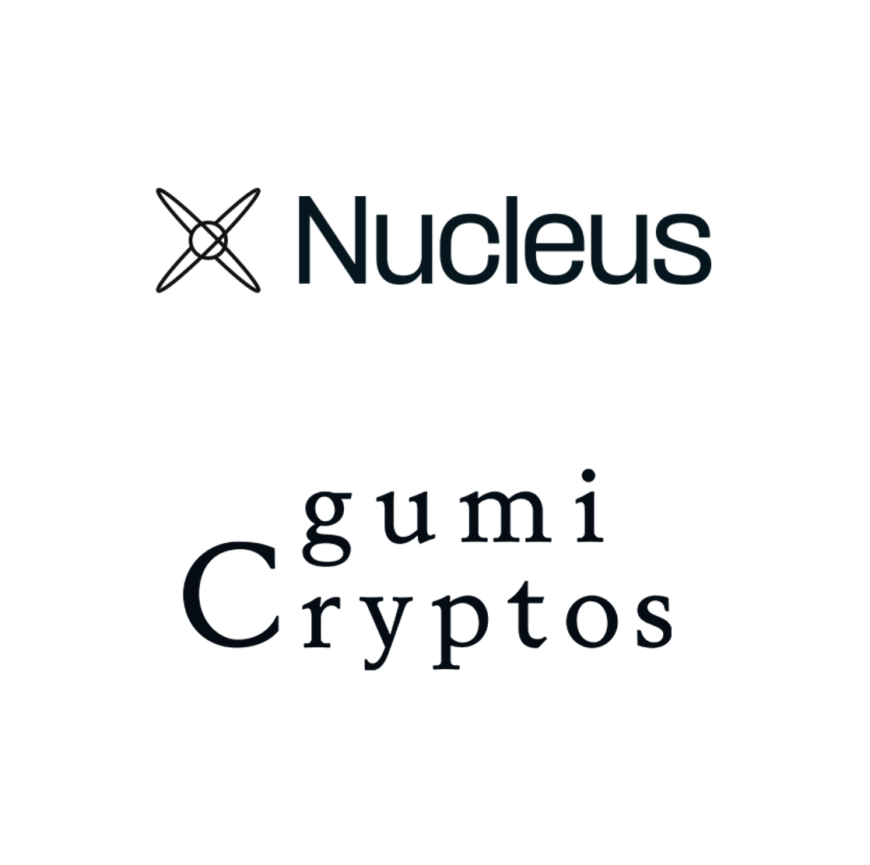
News
Nucleus, the team behind Ion Protocol, announced their $4.8M seed round, led by gumi Cryptos Capital, with participation from other investors including Robot Ventures, Collider VC, NGC Ventures, Finality Capital and Manifold Trading.
This brings their total funds raised to $7M, which has supported the development of Nucleus, the soon-to-be-launched default yield provider for rollups and appchains across the crypto ecosystem.
Thesis
Our investment in Nucleus is grounded in the belief that the future of DeFi lies in maximizing yield while reducing fragmentation across L1s, L2s, and app-specific chains. With the continued explosion of execution environments, users face significant opportunity costs when bridging assets, often missing out on staking yields from primary networks like Ethereum.
We view validator yield as the foundational base of the crypto risk curve, akin to the risk-free rate in traditional finance. Without a functional transmission and standardization mechanism to bring the short end of the curve to every user, application, and execution environment, the rest of the risk curve has struggled to stabilize. The importance of this cannot be overstated – this stabilization is needed to ensure that the relationship between risk and return across different investments is predictable, consistent, and reflects the underlying risk accurately. A stable risk curve allows investors and users to make informed decisions, knowing that higher risks are appropriately compensated with higher potential returns.
Nucleus, through Ion Protocol, addresses this challenge by enabling users to generate yield by default across various networks, effectively unifying liquidity and optimizing returns. By doing so, Nucleus not only enhances the attractiveness of new crypto networks, but also empowers them to focus on innovation and ecosystem development, all while ensuring that users do not forgo potential earnings. With this primitive, we believe that ETH and other non-yielding L1 tokens will decline as a percentage of all collateral directly bridged into L2 ecosystems, and will instead flow through Nucleus. This stabilization will help foster broader adoption and innovation across the entire crypto landscape, enabling every application to build on top of validator yield.
While unification of assets and the minimization of user opportunity cost is the first step, Nucleus was built with the ambition to change the landscape of how networks operate in crypto. The introduction of yield by default to networks enables them to diversify their revenue streams from the traditional revenue source of sequencer fees and enable their applications to integrate novel business models that can help sustain their growth and operations. Additionally, networks can gain access to many second order benefits, such as access to instant cross-chain finality through utilizing Nucleus’s cross-chain balances and infrastructure incentivization as Nucleus will be able to build incentive models allowing network infrastructure protocols (such as bridges, DA, etc.) to pass their revenue back to the users of the network. The future of finance is one driven by the expansion of the role of networks in providing users access to returns at low opportunity costs.
This approach aligns perfectly with our thesis of investing in infrastructure that supports sustainable, scalable growth in DeFi, positioning Nucleus as a key unifier in an increasingly fragmented crypto economy.
Team
We are incredibly excited to be backing a hungry crypto native team, led by Chunda McCain. Before Ion, Chunda was at Blockchain Capital where he focused on DeFi research. While there, he saw the EigenLayer deal take place, which opened his eyes to the idea of financialization of infrastructure primitives. Before that, he worked with Jai Bhavnani, the founder of Rari Capital, soon after the Fei – Rari merger, helping to design a previous iteration of Royco. Chunda started his career as a smart contract engineer at a neobank building infrastructure to facilitate on-chain capital raises and before that went to University of Pennsylvania where he studied at the Wharton School and College of Arts and Science for a dual degree Bachelor’s in Economics and Bachelor’s in Biology. While there, he started a blockchain organization which has since turned into FranklinDAO, a university affiliated DAO and led Penn Blockchain during his time there.
More to come…
We’re thrilled to invest in Nucleus, recognizing its potential as a unifying pillar in an increasingly fragmented crypto ecosystem. We invite you to join the Nucleus and Ion ecosystem. Visit https://nucleusearn.io/ and https://ionprotocol.io/ to learn more.
Disclaimer
Information is provided for general educational purposes only. This presentation is not an offer to sell securities or a solicitation of offers to buy securities. Nothing contained herein constitutes investment or other advice nor is it to be relied on in making an investment decision. For more important information, please see disclaimer



